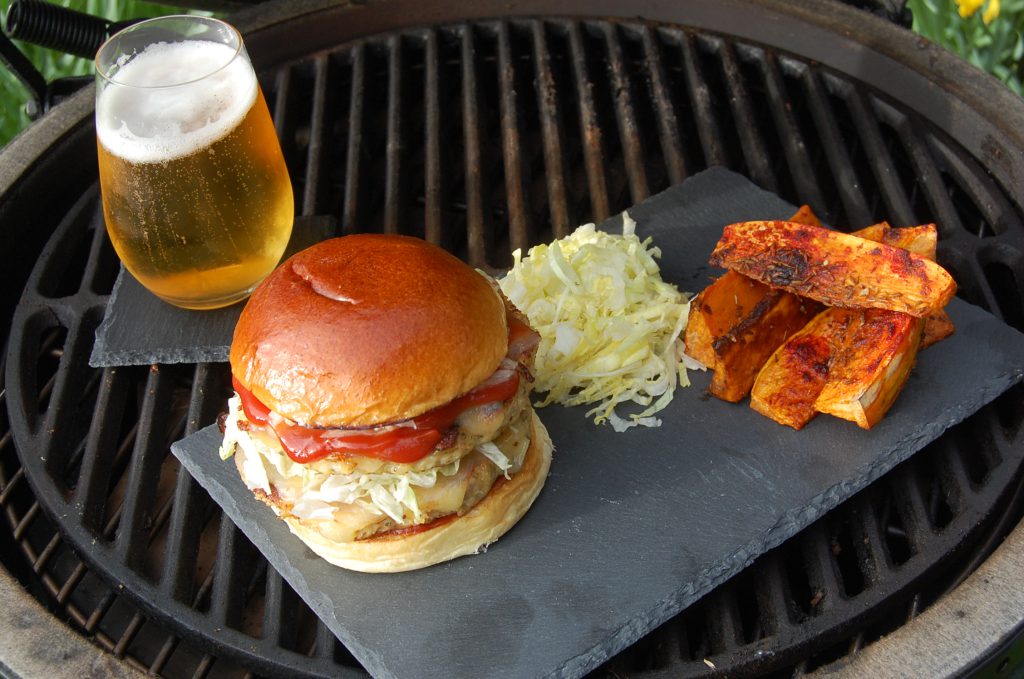
If you’ve been told you may need a bowel stoma, or once you’ve had stoma surgery, it’s natural you have worries around eating and drinking. Have you heard lots of ‘dos’ and ‘dont’s’ and wondered if they’re all true? We’re going to debunk some common nutrition myths for you.
Note: This advice doesn’t replace tailored diet advice from your healthcare professional.
Myth #1: I have to change my diet after my stoma
The ‘lower’ your stoma e.g. transverse, descending, or sigmoid colostomies, the more working bowel you have. This means your body has more time to digest food and absorb nutrients and water. Overall, this means a greater chance that you won’t need to adjust your diet long-term.
The ‘higher’ your stoma (e.g. ascending colostomies and ileostomies), it’s more likely that you’ll need long-term diet changes. About 6-8 weeks after your surgery, your bowel will be mostly healed and improved in how it absorbs nutrients and water. After this period, it’s recommended to reintroduce higher fibre foods and spicy flavours gradually. Some may find their gut can’t manage all the foods and drinks it once could so try experimenting to find what works best for you.
Myth #2: I can’t eat vegetarian or vegan foods
It’s often true that those who have more vegetarian or vegan foods eat more fibre, but not always! It’s also often true that those with ascending colostomies or ileostomies may have fewer stoma problems when eating lower fibre diets – again not always true!
Plants contain fibre and eating lots of fibrous plant-based high-protein foods e.g. beans, lentils, chickpeas, may bulk and harden some people’s stool to the point of making it harder to pass. A way to minimise this is to be mindful of portion size, ensure those foods are cooked until quite soft, and perhaps blending them into sauces.
Some ‘softer’ high-protein foods are:
· tofu
· tempeh
· Meat alternatives (e.g. Soya mince)
· nut butter
· ground/milled nuts and seeds
· some vegan yogurts, milks, and cheeses
Try our Ostomates Kitchen Vegetarian and Vegan Recipe Guide.
Myth #3: I can’t eat nuts, seeds, or pips in fruit
In the first 6-8 weeks after surgery, your bowel and stoma will still be quite inflamed so it’s best to avoid anything too rough in texture. After this, if you chew what you eat very well, eat fibre to your tolerance, and drink enough water, you can include these foods here and there in small or medium amounts.
Everyone’s experience will be different. If you’d like to try these foods a couple of months after your surgery then pick a day to have a small amount and see how you feel over the next few days.
We’re working on creating more ‘ostomate-friendly’ plant-based recipes, here’s one we made earlier!
Myth #4: Eggs will constipate me
You might be pleased to know you don’t need to cut eggs out. Fibre from foods like brown bread/pasta/rice, oats, vegetables, and fruits helps bulk our stools and clear the waste from our bowels. Drinking enough water helps make the stool soft and easier to pass, reducing the risk of pain and blockages. If we don’t have enough fibre or water, then we’re likely to become constipated.
If you have lots of loose stools then you may have been told to swap some of your higher fibre foods for other options. If you have strictures or are prone to blockages then it’s worth swapping insoluble fibre options (think fibrous and ‘tough’ like broccoli stalks and pineapple) to more soluble fibre (e.g. cooked carrots and peeled apples). For more advice, see our nutrition guide here.
Myth #5: I can’t ‘eat healthily’
To ‘eat healthily’ can mean different things to various people. At Fittleworth we think healthy eating is getting the balance of nutrients we need for our optimal health – eating a variety of foods, to our tolerance, is the best way to do that. Hopefully from the myth-busting above you’ll see that eating well for health is achievable for those with bowel stomas.
Food is as much about enjoyment as it is nourishment and we recommend doing some experimenting to find a way of eating that best suits you.
If you’d like tailored nutrition advice, please ask your medical team for a referral to your local NHS gastro-specialist dietitian or you can self-refer to a private practice dietitian on the Freelance Dietitians website here.
About the advice and opinions of our bloggers
We hope you enjoyed this article from our guest blogger. They are expressing their views or knowledge on a topic because of their experience & background. Some of the opinions expressed may not reflect the views of Fittleworth or your NHS professional.
 It goes without saying, but this is not clinical advice. Each person will have an individual set of medical factors to consider. So please do not to make significant changes to your diet, exercise or treatments before consulting with an NHS professional.
It goes without saying, but this is not clinical advice. Each person will have an individual set of medical factors to consider. So please do not to make significant changes to your diet, exercise or treatments before consulting with an NHS professional.
Laura Coster is a Registered Dietitian who is passionate about helping people feel confident in managing their health and find joy through what they eat.
She has worked in the NHS advising people at various stages of their stoma journey and continues to help promote gut health to all.
